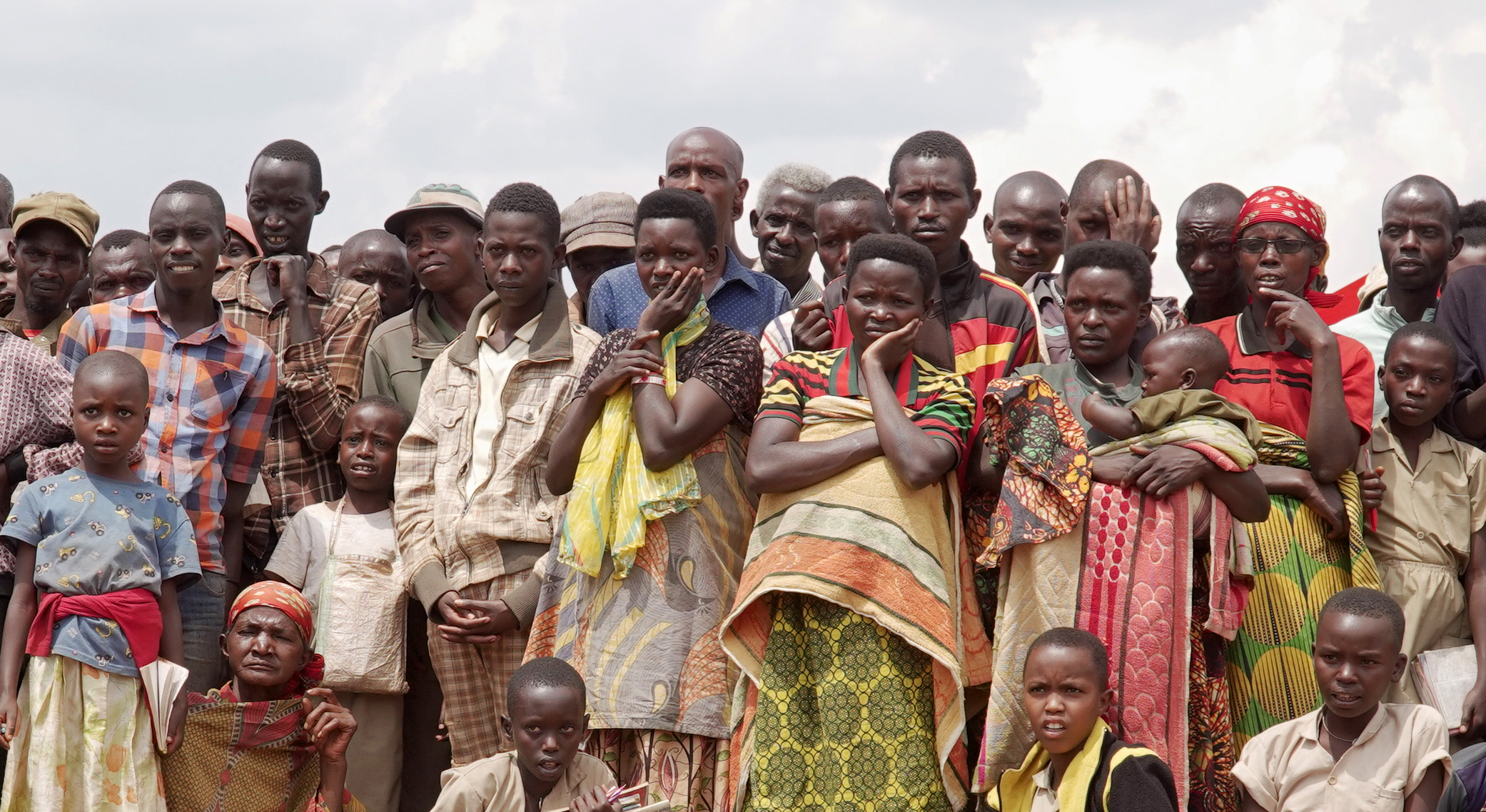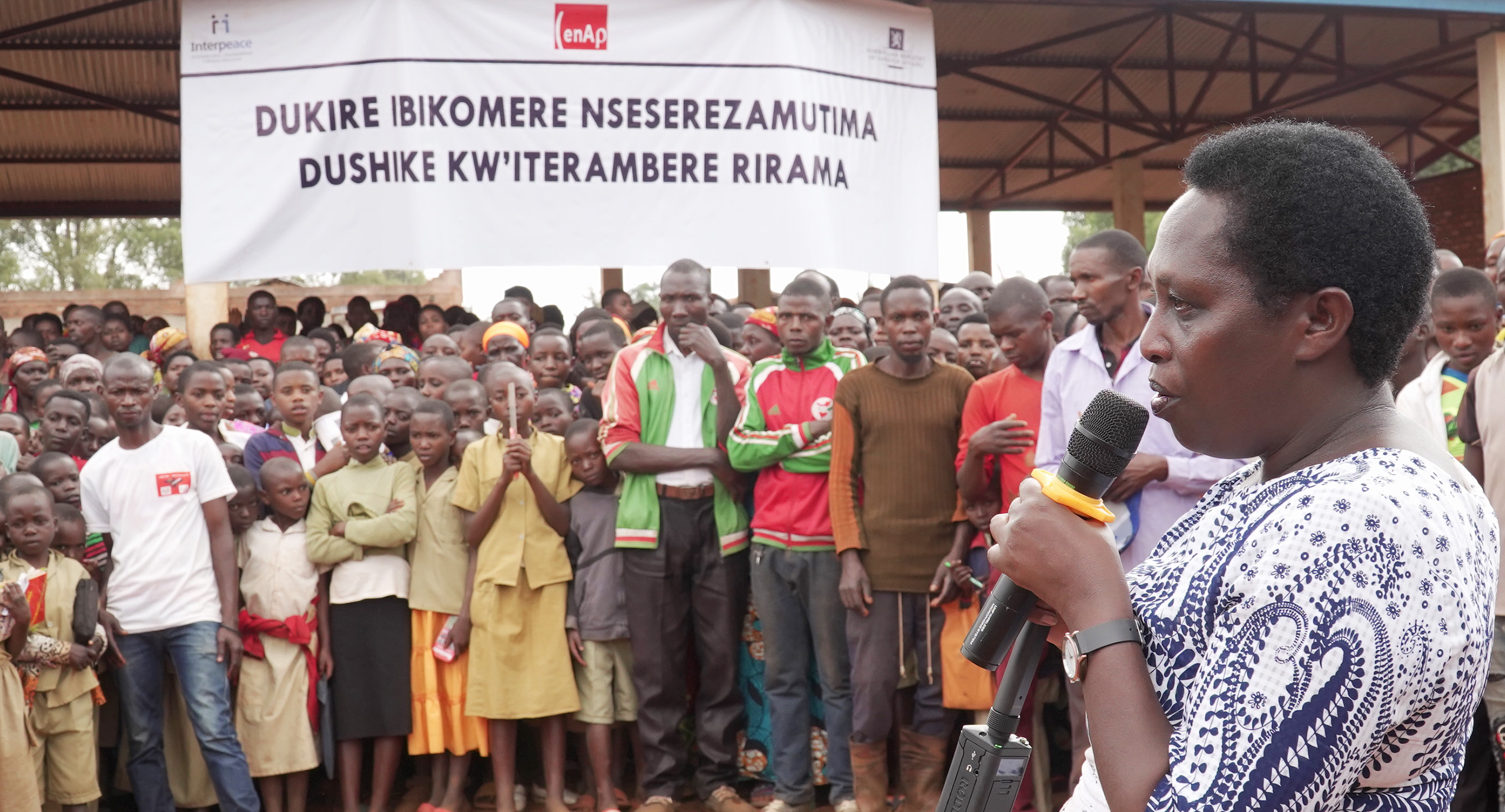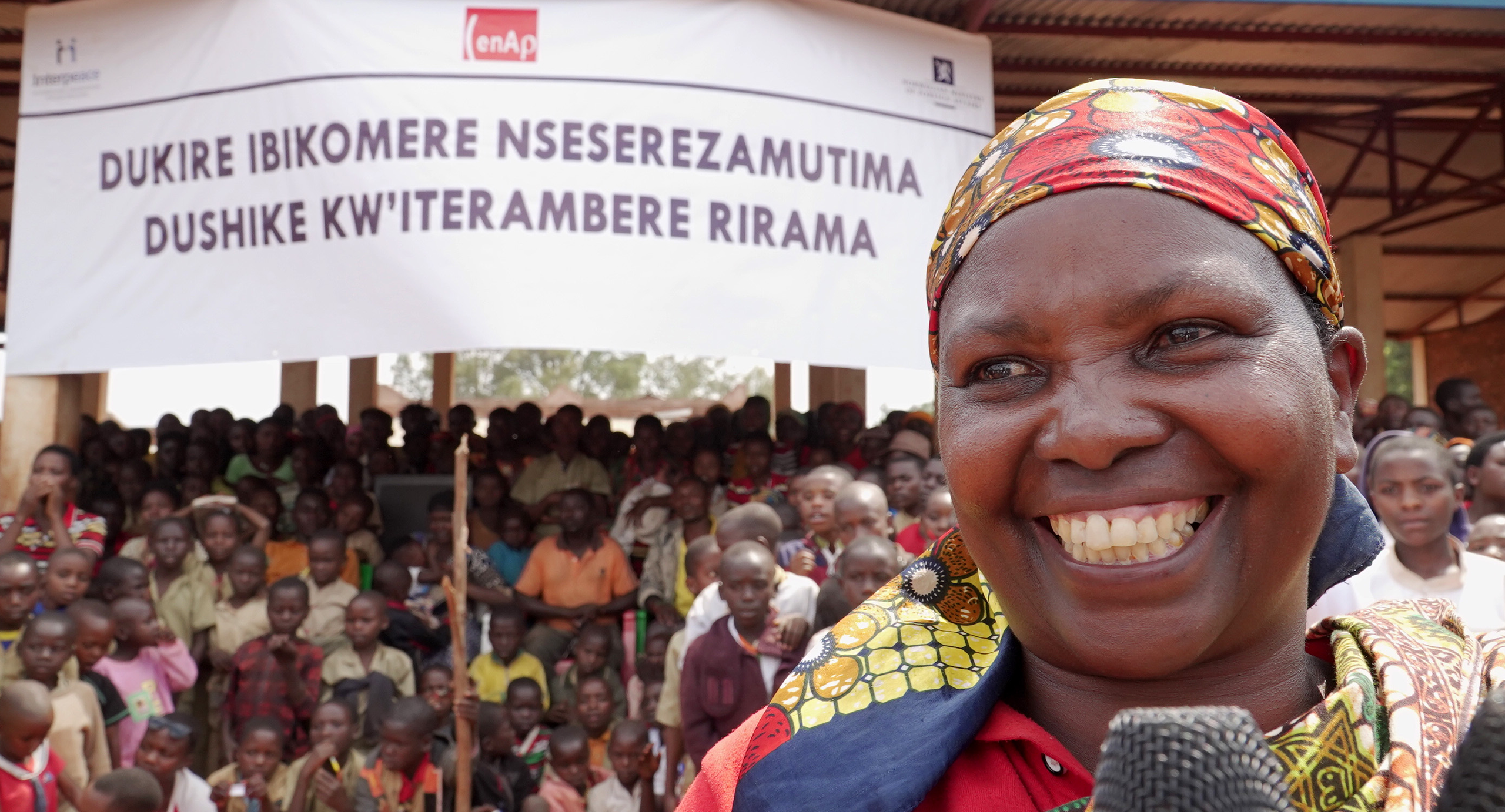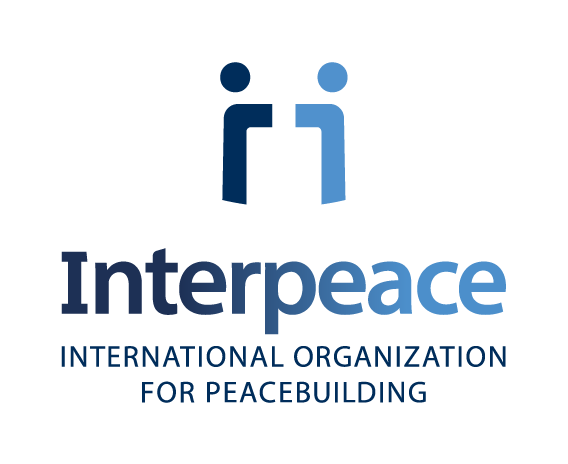To heal, to build: a communal administrator raises awareness of mental health in Ruhororo commune
Together with its partner, the Centre d’Alerte et de Prévention des Conflits (CENAP), in 2022 Interpeace started ‘Dukire Twubake’ (To Heal, To Build), a three-year project funded by the Government of Norway. The project aims to address how past trauma, gender and age affect the ability of individuals and communities to fully participate in peacebuilding, development and decision-making.

Saying that the ‘Dukire Twubake’ project had come at the right time, she encouraged the project’s community facilitators to continue their work to raise public awareness of MHPSS, recognising that Ruhororo commune had suffered particularly from political crises whose effects were still visible. “I invite the community, do not hesitate to approach these facilitators or to obtain basic psychosocial support that you need.”
The ‘Dukire Twubake’ project is therefore working to help communities heal their trauma, focusing particularly on traumas that are often overlooked.

To heal, to build: a communal administrator raises awareness of mental health in Ruhororo commune
Since gaining independence in 1962, Burundi’s people have suffered cycles of violence characterised by targeted massacres of civilians on ethnic lines. In 1993, revenge killings between the Hutu and Tutsi communities culminated in a civil war that lasted for more than a decade. After sustained negotiations, the last rebel group signed the Peace Accord in 2008. Subsequent elections in 2010 and 2015 were tense. However, the general elections held in May 2020 were considered a positive step towards ending electoral violence and instability.
Together with its partner, the Centre d’Alerte et de Prévention des Conflits (CENAP), in 2022 Interpeace started ‘Dukire Twubake’ (To Heal, To Build), a three-year project funded by the Government of Norway. The project aims to address how past trauma, gender and age affect the ability of individuals and communities to fully participate in peacebuilding, development and decision-making. Using psychosocial recovery methods and capacity and confidence building tools, the project hopes to empower women and youth, and communities affected by trauma, to advocate for their needs, mobilise others around those needs, and lead initiatives that build social and political cohesion and improve livelihoods.

In October 2022, CENAP ran an awareness campaign on the importance of psycho-social care for people living with trauma. Using participatory theatre, it was able to show audiences the trauma symptoms that can be seen in people who have been affected by past socio-political crises, as well as forms of psychosocial support that can help them. At the end of the campaign, the administrator of Ruhororo, one of the communes in Ngozi province that still hosts displaced persons from the 1993 crisis, highlighted the importance of managing trauma inherited from Burundi’s past conflicts:

“We often hear about forms of criminality that leave us speechless, especially when we cannot explain them: homicide between couples, abuse of children by parents. We now understand that these are the effects of traumas experienced but not addressed. These traumas prevent us from achieving reconciliation and sustainable development.”
She added that serious cases of mental illness are often disregarded and not given the importance that they deserve. Saying that the ‘Dukire Twubake’ project had come at the right time, she encouraged the project’s community facilitators to continue their work to raise public awareness of MHPSS, recognising that Ruhororo commune had suffered particularly from political crises whose effects were still visible. “I invite the community, do not hesitate to approach these facilitators or to obtain basic psychosocial support that you need.”
The sensitisation sessions organised by CENAP took place in three localities of Ruhororo commune. The communal administrator personally attended two of the sessions.
When the psychosocial support needs of the Ruhororo community were mapped, it was noted that, while other initiatives are making efforts to reconcile communities weakened by conflict, far too little support is available to meet the immense need for trauma healing. In addition, although psychosocial workers treat individuals clinically, a community-based approach is required to reach and support those affected by Burundi's painful past. The ‘Dukire Twubake’ project is therefore working to help communities heal their trauma, focusing particularly on traumas that are often overlooked.

